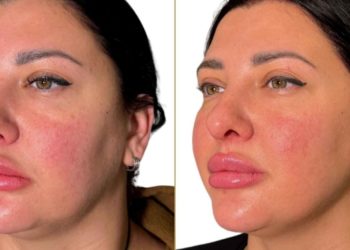Autism spectrum disorder (ASD) is a disorder characterized by behavioral, social, and intellectual impairments within individuals. The disorder implies that the symptoms can vary from person to person, which is why there is no one-size-fits-all treatment to manage the condition. Most autism treatments target managing the symptoms and supporting development and learning.
Let’s take a look at some of the evidence-based therapies for autism and explore the scope of stem cells as an advanced treatment option for underlying ASD conditions.
What is autism?
Autism spectrum disorder, the most prevailing neurodevelopmental disorder, involves challenges with
- Communication and social interactions.
- Restricted and repetitive behavior patterns, interests, and activities.
- Intellectual disabilities.
ASD is 4.2 times more prevalent among boys as compared to girls. Early diagnosis and interventions can play a critical role in preventing disease progression and improving symptoms.
Current treatment methods for autism
No one treatment can promise 100% results for treating the range of disorders underlying autism. Most ASD treatments aim to maximize an autistic child`s ability to function by reducing symptoms and supporting the development and learning through various strategies.
Evidence-based autism treatments include
- Behavioral therapies
- Developmental therapies
- Educational therapies
- Other therapies
Behavioral therapies
These target social, language, and behavioral issues by using specialized structured techniques to help autistic children learn new ways of interaction and build on skills while reducing behavioral issues.
Some popular behavioral therapies include
- Discrete Trial Training (DTT).
- Early Intensive Behavioral Intervention (EIBI).
- Pivotal Response Treatment (PRT).
- Positive Behavior Support (PBS).
Developmental therapies
The purpose of these is to work on an individual`s skills and help develop positive, meaningful relationships with their families and peers. The treatment focuses on teaching social, communication, and daily living skills in a structured setting.
Some developmental therapies are
- DIR/ Floortime therapy.
- Responsive Teaching.
- Developmental social-pragmatic (DSP) model.
Educational therapies
These highly structured programs usually include a team of specialists and several activities that boast an autistic child`s social, communication, and behavior skills.
Other therapies
Depending upon your child`s needs, several other forms of therapies are available as well, which include
- Family-based therapies.
- Speech and language therapies.
- Occupational therapy.
- Psychotherapy.
- Stem cell therapy.
- Medications.
Why is treating autism difficult?
Autism refers to a number of disorders, which is why treating autism for each disorder can be very challenging. ASD treatment requires a more multi-disciplinary approach and integration of several therapies across the lifespan. For instance:
- Early Intensive Behavioral Intervention
- Special education
- Psychopharmacology
- Medical interventions
- Physical therapy
- Occupational therapy
- Speech therapy
- Vocational therapy
- Social skills training
Combining several therapies and treatments that address each symptom individually, has been proven to be the best strategy for treating symptoms and building on skills.
Currently, most pharmacological interventions focus primarily on ameliorating the challenging emotional and behavioral symptoms rather than the core of the disorder, whereas the cell-based approach focuses more on treating core symptoms.
Family involvement is another key area that plays a critical role in enforcing changed behaviors and managing the condition. Lack of parental involvement or ignorance within a house, can also delay the treatment’s success and affect its outcome.
Stem cells for autism
Stem cell therapy is a form of regenerative medicine that helps replace or repair damaged cells, reduce inflammation and modulate the immune system. These cells offer endless possibilities for transformative and potentially curative treatments for neurodevelopmental conditions like autism and cerebral palsy.
Currently, scientists are trying to explore more about autism and stem cells therapeutic effects in treating inflammation within the brain and tissue regeneration.
Clinical trials and results
Evidence suggests that stem cells, with their immunomodulatory, anti-inflammatory, and multi-directional differentiation capacity, have been proven to be a breakthrough in treating ASD symptoms.
In addition to multilineage differentiation potential, stem cells also have shown the ability to migrate to injured sides to promote tissue regeneration and cell survival. Thus, accelerating immature neuronal development and increasing endogenous cellular proliferation within damaged parts of the brain.
Safety of stem cell therapy in autism
Several research reports have indicated the efficacy and safety of stem cell therapy for patients with autism (DOI:10.1186/s13229-020-00348-z). No publications indicate cases of serious adverse effects or neurological deterioration linked to stem cells and autism.
91% of autistic individuals have seen remarkably improved results after the therapy that include:
- Reduced aggressive behavior and hyperactivity.
- Improved eye contact and attention span.
- Improved social and communication skills.
Moreover, stem cells present no ethical concerns and possess low immunogenicity when injected into the body, making them the perfect treatment for treating autism symptoms.
Can stem cell therapy be expected to replace common autism treatment?
Stem cells and autism research is a relatively new and rapidly developing field. As more clinical trials are conducted, we are likely to observe an increase in stem cell treatment for autism and other neurodevelopmental conditions. However, researchers suggest combining stem cell therapy along with other interventions for the best treatment outcomes and mitigating ASD symptoms.
Moreover, clinicians are still investigating more about adult autism and stem cells limitations in treating severe ASD symptoms like sensory processing issues.
Final thoughts
Stem cell treatment holds the answer to managing neurodegenerative diseases that are still considered untreatable. Combining this therapeutic approach with other interventions and therapies can help autistic individuals build skills to live socially independent life.
David Prior
David Prior is the editor of Today News, responsible for the overall editorial strategy. He is an NCTJ-qualified journalist with over 20 years’ experience, and is also editor of the award-winning hyperlocal news title Altrincham Today. His LinkedIn profile is here.


![7 Best POS Software in the UK [2026 Edition]](https://todaynews.co.uk/wp-content/uploads/2026/02/7-Best-POS-Software-in-the-UK-2026-Edition-360x180.png)








































































